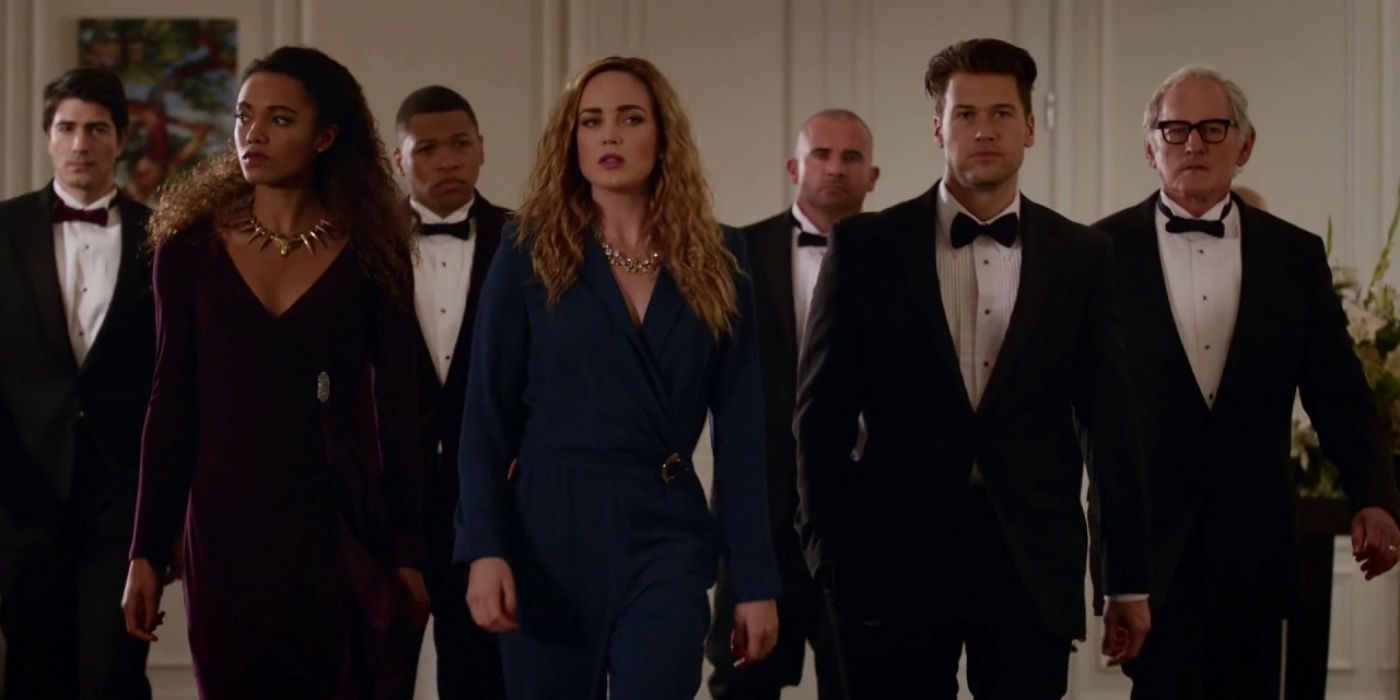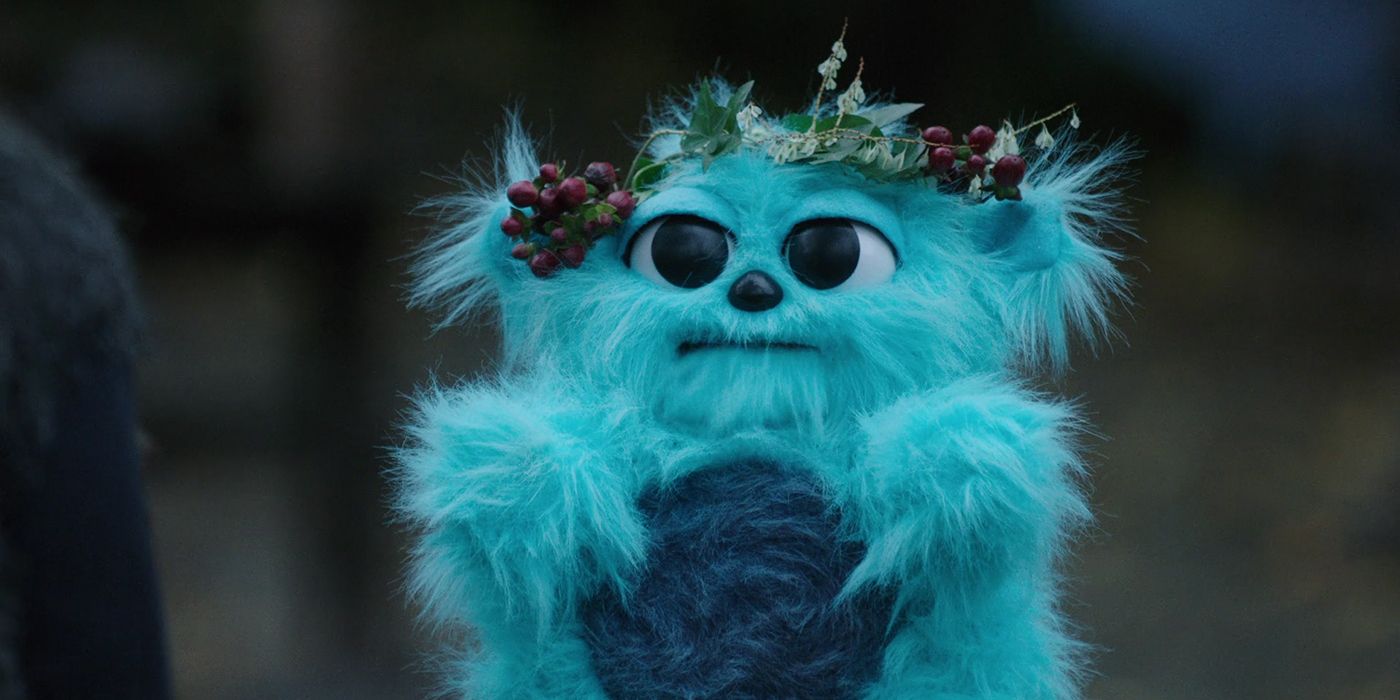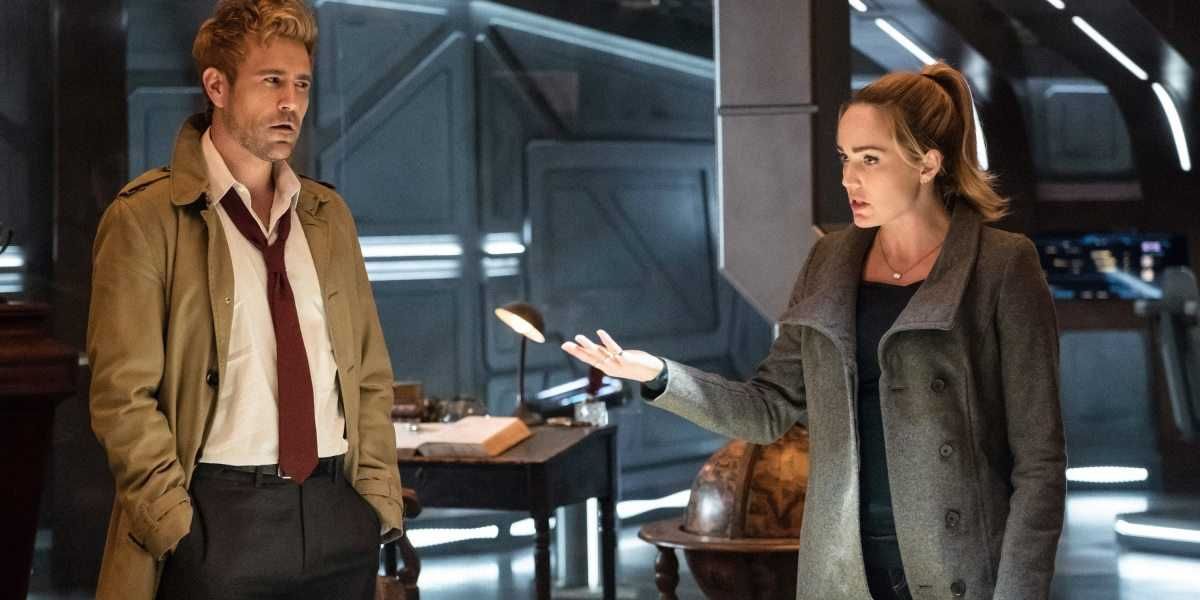DC's Legends of Tomorrow was never a shining star in The CW's lineup of superhero shows, often eclipsed by other series such as Arrow and The Flash, but over time it morphed into the most consistently entertaining show in the Arrowverse. After a slow -- and occasionally painful -- first season, it jettisoned its shackles of drama and angst to embrace the absurd premise of super powered misfits and time travel. Legends of Tomorrow became a wild and wonderful mix of parody, farce and fantastical sci-fi.
A lackluster Season 1 served viewers a fairly standard superhero story, focusing on familiar secondary characters from other Arrowverse shows and mixed in time travel elements via the mysterious Rip Hunter and his ship, the Waverider. The choice to emphasize the villain Vandal Savage and two less interesting characters, Hawkman and Hawkgirl, was unfortunate and often bogged down the story lines. However, stellar moments shone through, foreshadowing its coming brilliance; the grim look at Star City's future, Rory's betrayal and redemption, and the heartbreaking death of Captain Cold were a few of the highlights.
After the Season 1 finale, where the show thankfully said goodbye to the boring Hawks and introduced a brief glimpse of the Justice Society, the show began the pivot from average to awesome. While it hadn't yet shed its serious superhero shell, the cracks were forming. Rip Hunter's disappearance left Sara Lance in charge, a shift that refocused both the character and the storylines, and Nate Heywood joined the crew to add an underlying sense of humor. Nate's friendship with Ray Palmer -- who morphed into the cheery heart of the team -- became one of the whimsical backbones of the show for several seasons.
Another Season 2 addition came with Amaya Jiwe/Vixen, a Justice Society member who introduced the totems -- magical talismans that would play vital roles in future episodes. Legends also repurposed old Arrowverse villains to create interesting character dynamics and development, and the final episodes showcased a quirky and intriguing might-have-been timeline. Their defeat came at the hands of Sara, who reset their meddling alterations; her actions set up the next season and cemented the zaniness to come.
Season 3 was where Legends of Tomorrow broke the Arrowverse mold and kicked it out the airlock. Rip Hunter returned in a recurring role with his newly formed Time Bureau, and brought Ava Sharpe, his best agent, into the lives of the Legends. John Constantine made a guest appearance, introducing magic permanently into the Legends universe, while both Nora and Damien Darhk were presented as ruthless, yet sympathetic, antagonists hoping to summon a demon.
And then there was Beebo. The blue furry wonder of a toy that served as both a god to a confused clan of Vikings and the inspiration for the season finale's iconic takedown of the demon Mallus. No fan of the show can ever forget that scene of a gigantic Beebo avatar -- conjured by totem-wearing Legends -- declaring, "Beebo want cuddles" before grabbing a flying Mallus and crashing to the ground in a heart-shaped puff of blue smoke.
The following seasons only conjured more ridiculous and entertaining madness (and ongoing Beebo references), as well as some of the best couples in the Arrowverse. The Flash may have Iris and Barry, and Arrow had Felicity and Oliver, but Legends of Tomorrow gave fans Sara and Ava, Ray and Nora, Nate and Amaya, Nate and Zari, and the strangest of all, Gary and Gideon (arguably the most adorable alien/AI-turned-human paring ever). Even Rory got to ride off into space with his alien assassin girlfriend.
From Season 3 forward, the show jelled, the cast creating a team you cared for and loved to laugh at or with. Further storylines ranged from nipple munching unicorns, turning the crew into puppets, musical numbers, to a slasher movie parody where Ava's serial killer obsession comes in handy. Writers gave viewers fairy godmothers, a book club subplot, Mick Rory the romance novelist, and even Hell itself, plus many more crazy adventures. Legends pulled off a delicate balance between slapstick comedy and true story development. When characters died or left, they were mourned; when they did something stupid, it had context, and they earned their forgiveness or redemption. Yet all the running gags and the silliness fit, infusing the show with an enjoyable tone, making it a joy to watch.
Legends of Tomorrow was a unique superhero show that decided to throw away the rule book to have a good time zipping through time and space, and fans will always be grateful they were invited along for the ride. The cancellation was a disappointment, and despite leaving with an unresolved cliffhanger with the promise of Booster Gold, the show will be fondly remembered. Farewell, Waverider, you will be missed.





